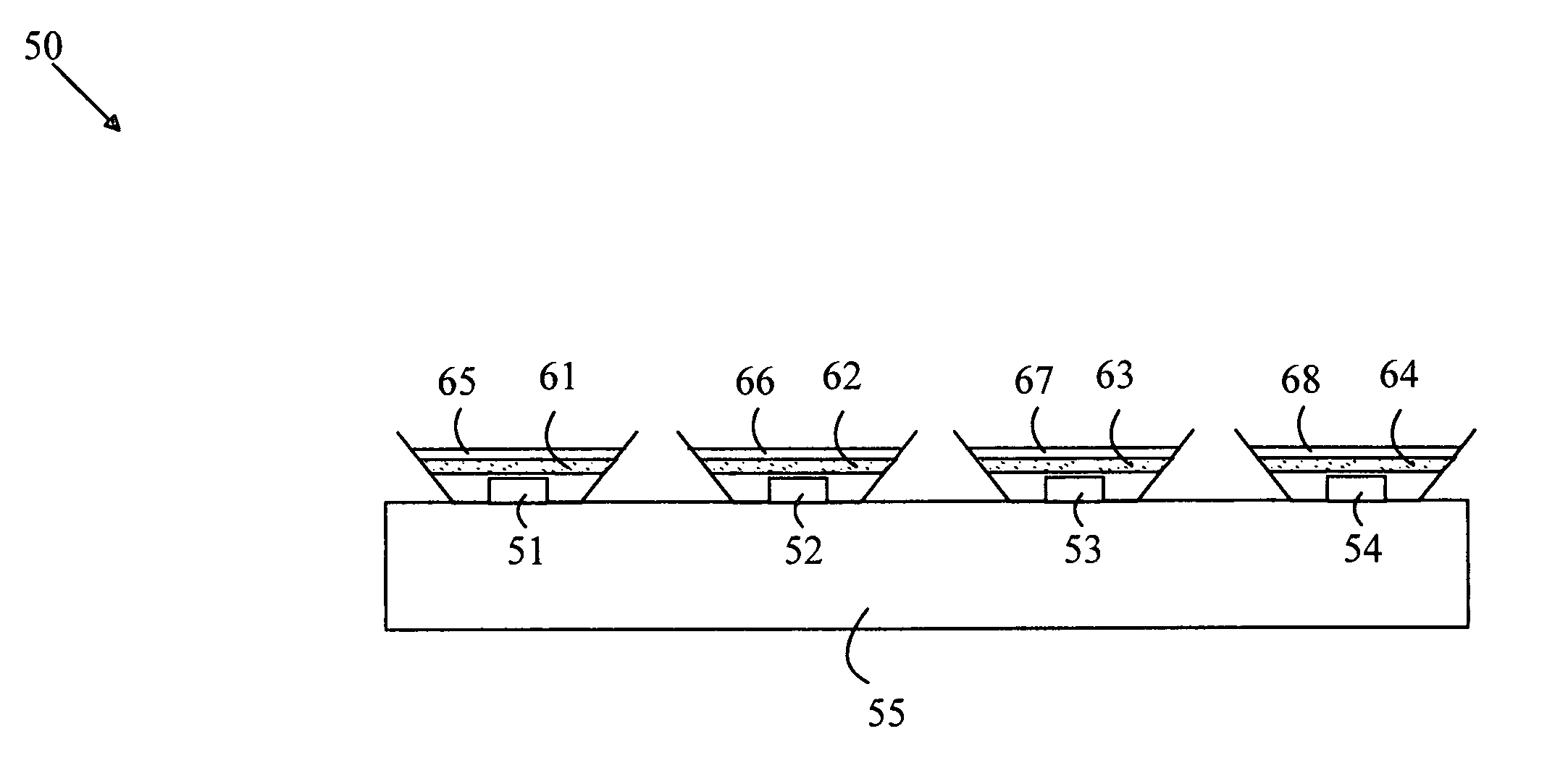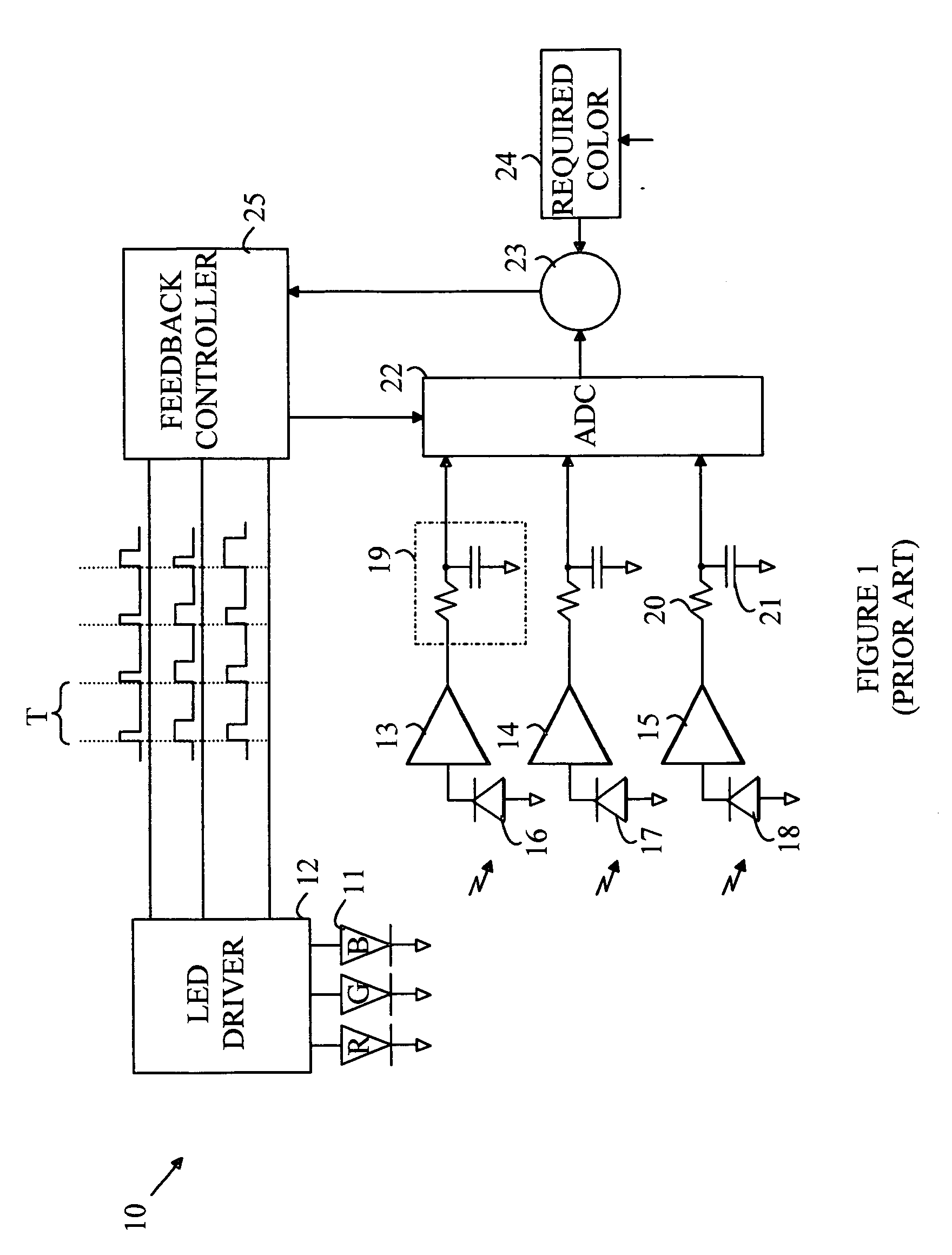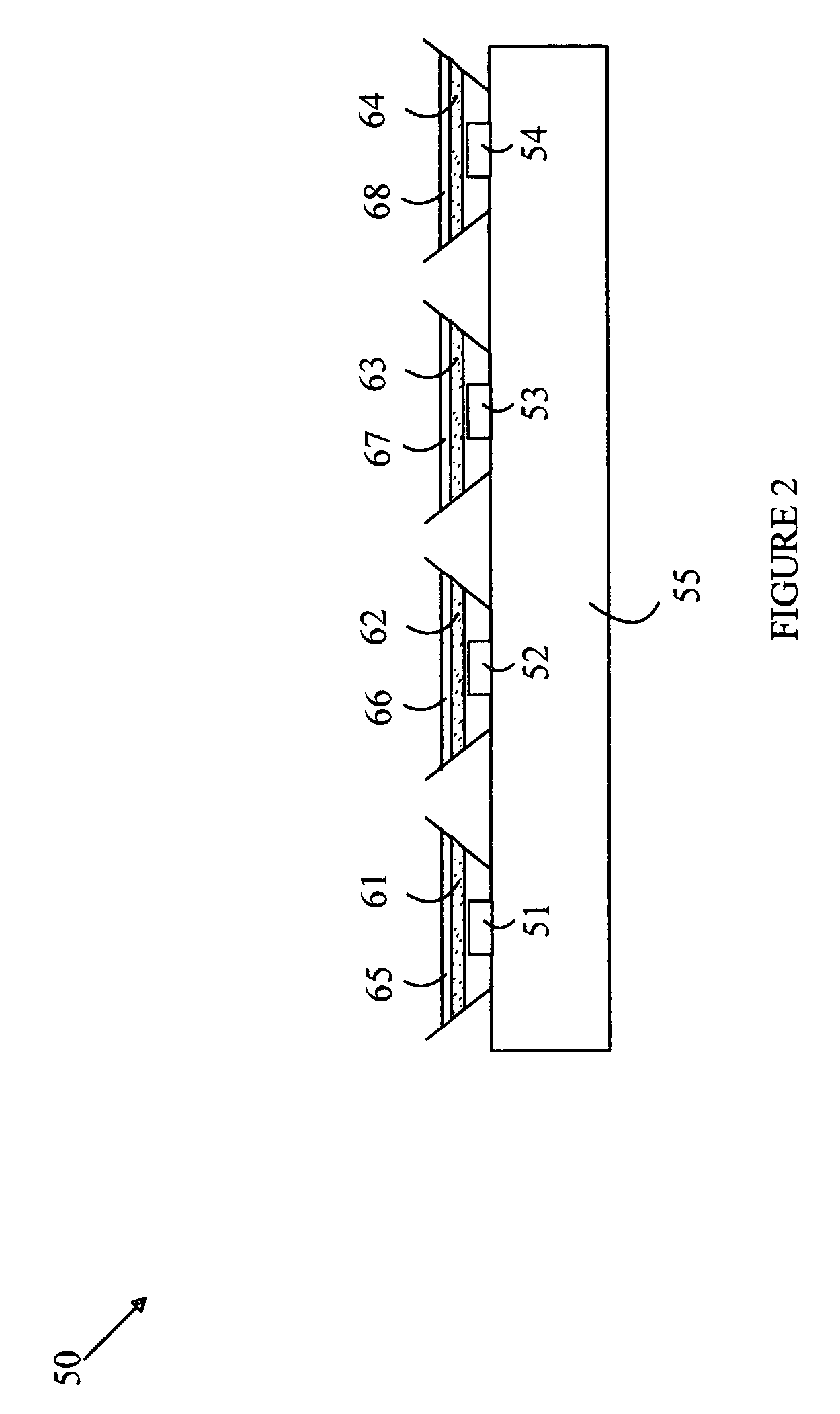Phosphor converted light source
a light source and phosphor technology, applied in the field of phosphor converted light sources, can solve the problems of increasing the cost of the light source, light in a relatively narrow spectral band, and the output of individual leds
- Summary
- Abstract
- Description
- Claims
- Application Information
AI Technical Summary
Benefits of technology
Problems solved by technology
Method used
Image
Examples
Embodiment Construction
[0009] The manner in which the present invention provides its advantages can be more easily understood with reference to FIG. 1. FIG. 1 is a block diagram of a prior art LED light source that utilizes a feedback system to control the duty factor of the individual LEDs to produce a precise output color. Light source 10 utilizes red, green, and blue LEDs 11 to generate light of an arbitrary color. The LEDs are driven by a driver 12 that sets the current through each LED when that LED is “on”. In the “on” state, each LED is driven with a predetermined current that is independent of the color being generated by light source 10. The LEDs are driven in a pulsed manner with a cycle time having a period T. During each period, each of the LEDs is turned on for a time t that depends on the color of light that is to be generated by light source 10.
[0010] To simplify the following discussion the ratio t / T will be referred to as the duty factor. In principle, the intensity of the light, as seen...
PUM
 Login to View More
Login to View More Abstract
Description
Claims
Application Information
 Login to View More
Login to View More - R&D
- Intellectual Property
- Life Sciences
- Materials
- Tech Scout
- Unparalleled Data Quality
- Higher Quality Content
- 60% Fewer Hallucinations
Browse by: Latest US Patents, China's latest patents, Technical Efficacy Thesaurus, Application Domain, Technology Topic, Popular Technical Reports.
© 2025 PatSnap. All rights reserved.Legal|Privacy policy|Modern Slavery Act Transparency Statement|Sitemap|About US| Contact US: help@patsnap.com



